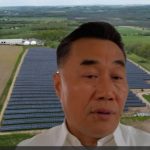COP 22-Paris agreement and Human Rights
After the Kyoto Protocol which was not respected by most of the countries, Paris Agreement should be the world’s biggest upswing in Climate change policy. But will it be easy for Human Rights to be at the forefront of the talks in Marrakesh?
By Aya Kathir
The Agreement
Paris agreement is a critical turning point toward a zero-carbon and resilient world according to the French presidency of the COP 21, the UN Climate Change summit held last December in Paris . The next UN Climate Change conference will be a space of action, said the Morrocan presidency. After the Kyoto Protocol which was not respected by most of the countries, Paris Agreement should be the world’s biggest upswing in Climate change policy. This agreement was adopted in Paris during the 21 UN Conference on climate change. On 22 April 2016, the text was opened for signature. It was during the Earth Day in New York city. Early August 2016, 180 members of the United Nations Framework Convention on climate Change (UNFCCC) have signed it. Now, around 23 States have deposited their instruments of ratification, acceptance or approval accounting in total for 1.08 % of the total global greenhouse gas emissions, describes the UNFCCC website.
So, it is only representing around 1.08 % of the total global greenhouse gas emissions. It’s not a working base. But certainly, Paris Agreement was a « historic turning point » as it was mentioned by Laurent Fabius, the Head of Paris Conference and France’s foreign minister. This agreement aims to reduce the global warming by controlling the Co2 emissions and diminishes greenhouse gas, as it was described in details in Article 2 of the UN Climate Change Convention. It sets ambitious goal: » to increase in the global average temperature to well below 2°c pre- industrial levels ».
Criticism
The agreement was praised by the French President François Hollande , with the UN secretary general Ban Ki – Moon, and the Climate Change UN Executive Secretary at that time, Christina Figueres. Although, it was surrounded by criticism. “The agreement is all about « promises » and we don’t see its impact in real life”, said James Hansen, a former NASA scientist and Climate change expert. Specially after the limited participation in the Kyoto Protocol and the lack of agreement in Copenhagen in 2009. But the Kyoto Protocol did not include a single reference to the rights of indigenous people and ecosystem integrity. As opposed to the Kyoto Protocol, Human Rights are include in the Paris Agreement, not in the body of the text, but it is included in the preamble.
What does that mean for Africa?
Protecting the ecosystem is the protection of the Human Rights. The agreement affirms the important role to protect the ecosystems, biodiversity and land use and its impact in human’s life, which will reduce the risk of the climate change impacts. But, in parallel of the COP 21, a document presented by Indigenous leaders from Africa, Asia and Latin America explained that over 20 percent of carbon stored in the world’s tropical forests belong to the Indigenous people, which demonstrated that indigenous group have to be fully included in the forest protection process.
Mentioning the Human Rights importance in the preamble of the Paris agreement showed clearly that the Human Rights is a major part of the Climate Change discussions. The Human Rights council also called for the cooperation of applying measures to help the developed countries as they are the most exposed countries to the adverse effects of Climate Change. But that is not enough complains civil society. Human rights should be included in all the issues of development.
What the future holds for Africa?
African negotiators urge the « developed countries » to respect their commitments to finance the developing countries with the $100 billion goal per year to reach by 2020. These commitments were mentioned unclearly in the Paris agreement with no indication on how the finance will be distributed by 2025.
There is a long way to go to reach the $100 billion announced initially in Copenhagen, even if African negotiators are pushing for it, especially for adaptation. But with the Paris Agreement, Africa can have access to electricity. The African Development Bank New Deal on Energy for Africa is part of this process and it is a partnership-driven effort with the aspirational goal of achieving universal access to energy in Africa by 2025.
According to the African Progress Panel’s report known as “Opportunity Africa: Powering the future now”, between 2015 and 2040, the population of Sub-Saharan Africa is expected to increase by 755 million or 81 percent. Electricity generation will have to almost double by 2040, simply to maintain per capita provision.
Paris agreement can be a great opportunity for Africa to create strategies to access to new approaches and technologies, even if access to technologies is difficult due to problem of access to finance.
One can hope that Africa will realize the dream of a clean, good and a healthy environment. For civil society, indigenous people rights, women rights should be at the forefront of the negotiations during COP 22. But is it so easy? The main question is still remaining…
 Aya Kathir is a 23 years old young freelance egyptian journalist . She owns a bachelor of french litterature, obtained in the university of Cairo. Trilingual, she speaks arabic, english and french. She contributed to the famous newspaper « El Yom » as a poet. She was part of the university paper committee of the french litterature faculty. She is now based in the US where she is writing articles on human rights. She is part of the online trainees of Eraenvironnement.com.
Aya Kathir is a 23 years old young freelance egyptian journalist . She owns a bachelor of french litterature, obtained in the university of Cairo. Trilingual, she speaks arabic, english and french. She contributed to the famous newspaper « El Yom » as a poet. She was part of the university paper committee of the french litterature faculty. She is now based in the US where she is writing articles on human rights. She is part of the online trainees of Eraenvironnement.com.




